Today marks the first anniversary of Hamlet Batista’s death.
SEO software companies are actively using his life’s work and not giving him credit.
I’m not okay with that and I can’t believe that I even have to write this.
I don’t write this as a family member or even as a close friend. Though Hamlet had been in the SEO space much longer than I, we only knew each other for the last 2-3 years years of his life. Rather, I write this as someone who was inspired by his work and as someone who has deep reverence for what he contributed to the SEO community.
From what I know of Hamlet, he was a deeply humble person. While I hate to speculate, I imagine that, if he were still alive, he probably would not be speaking out in this way. He was a person that was always so eager to help and it yielded him the elusive EB1 Green Card for SEO.
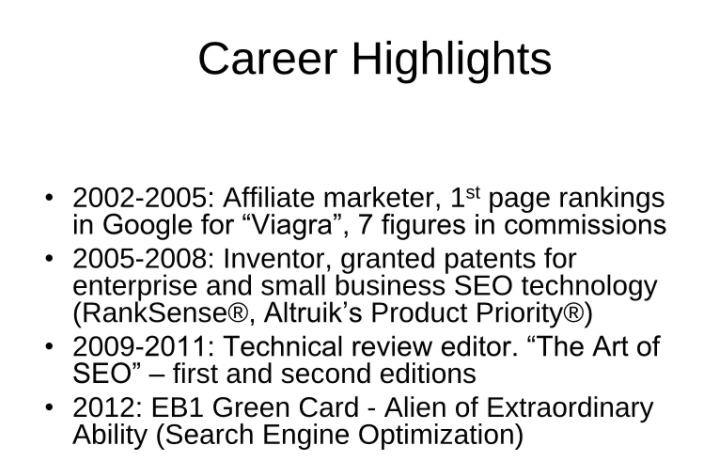 In fact, I think he might even be happy, on some level, to see how what he built has influenced companies like Conductor, SEMRush, and SEOclarity to build products that are direct derivatives of his work. After all, imitation is the highest form of flattery — or whatever it is that people say to make copying innovators feel like it’s alright.
In fact, I think he might even be happy, on some level, to see how what he built has influenced companies like Conductor, SEMRush, and SEOclarity to build products that are direct derivatives of his work. After all, imitation is the highest form of flattery — or whatever it is that people say to make copying innovators feel like it’s alright.
So, what are we talking about here?
At best, we’re talking about negligent theft of intellectual property. At worst, the all-too-common erasure of the contribution of a person of color by the dominant caste.
For some of you that second statement is hard to read. I encourage you to pursue further education if the idea of whitewashing and profiting from the contributions, labor, and even physical bodies of people of color as an aspect of systemic racism is shocking to you.
That said, here are the facts.
The SaaS platform allowed a user to edit a website “at the edge,” meaning that you could place the software in front of the website and change what is seen by the end user and search engines without actually changing the site itself.

According to the company website, Hamlet Batista built a SaaS SEO software platform called RankSense beginning in 2015 (technically, he built an award-winning desktop SEO software called RankSense in 2008). The SaaS platform allowed a user to edit a website “at the edge,” meaning that you could place the software in front of the website and change what is seen by the end user and search engines without actually changing the site itself. In recent years, people have been injecting these types of changes between the end user and the origin server by using workers on CDNs. This concept has since evolved to become what’s commonly referred to as “Edge SEO.” It’s also the basis of how some SEO split testing technologies work.
Now, several years after the launch of Hamlet’s RankSense, multiple SEO software companies are launching tools that do this. Conductor announced its “Live” product in November of 2020. SEMRush reached out to my team earlier this week to beta test something similar, and yesterday SEOClarity announced its “ClarityAutomate” product whose landing page describes it as a combination of functionality found in RankSense and SearchPilot.
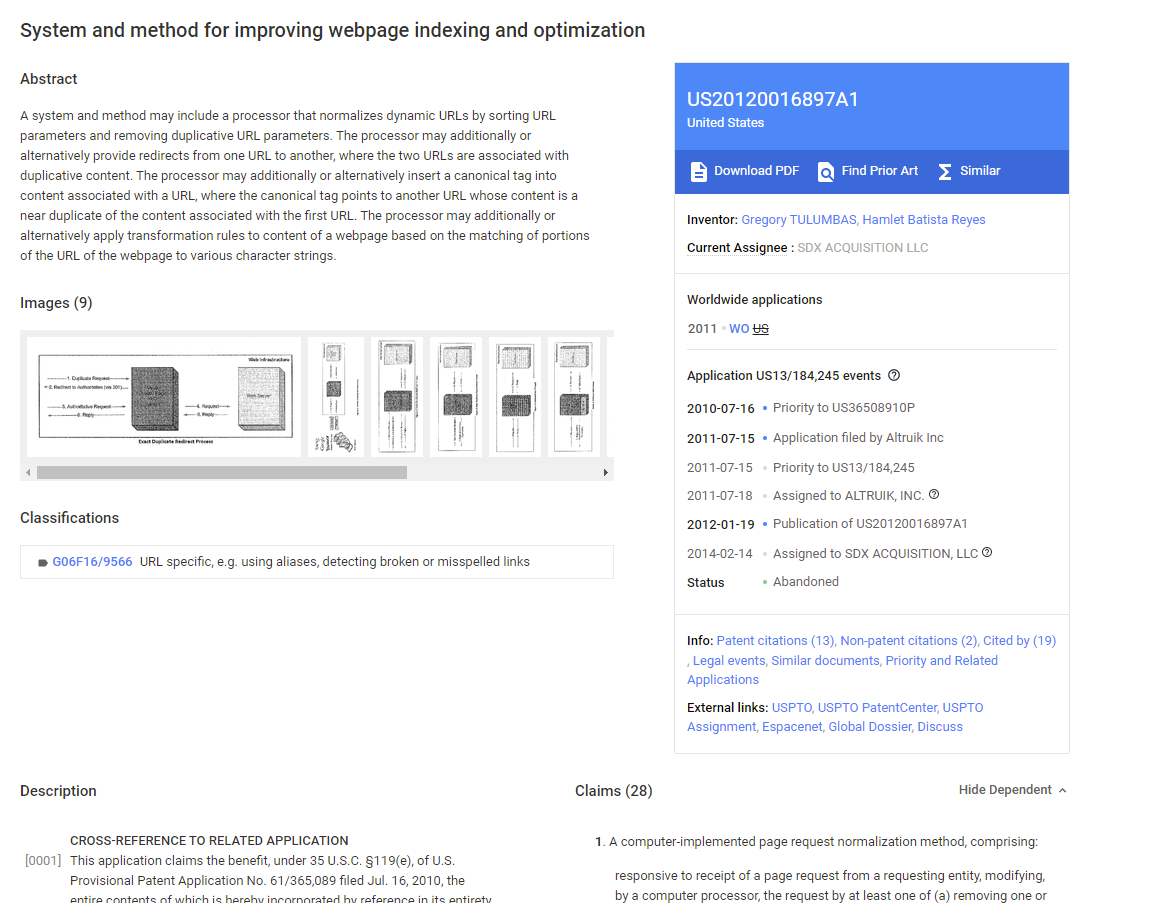
Here’s the kicker, Hamlet is literally an inventor of the concept of Edge SEO (with Gregory Tulumbas, CTO of Altruik) and filed for a patent in 2010. The patent was assigned to Altruik, Inc in 2011 where Hamlet was the Chief Search Strategist. He describes the product in his own words on his LinkedIn profile:

Gregory further explains the platform called “Product Priority” on his profile:
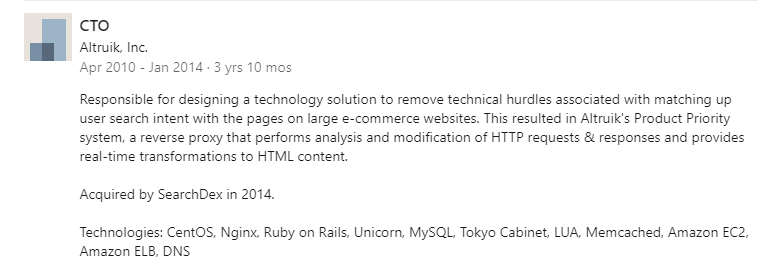
Altruik, Inc was acquired by SearchDex in 2014 and ultimately that patent was abandoned. Based on his LinkedIn, Gregory would move on to build a variety of other things for several other types of companies while Hamlet would remain passionate about building his Edge SEO technology and continued to improve upon it with RankSense. My point, however, is that he is on public record as an official inventor just like Matt Cutts is an inventor of many components of Google Search.
Hamlet’s 2011 and 2015 Patents for Edge SEO
Hamlet actually holds five patents assigned under his full name “Hamlet Francisco Batista Reyes” or ”Hamlet Batista Reyes.” Those patents are cited in other patents by companies like IBM, Microsoft, and Salesforce. The 2011 patent, “System and method for improving webpage indexing and optimization” is cited by Google eleven times.
In that patent Hamlet and Gregory detail the concept of a system acting as a reverse proxy between the web server and end user, or search engines. The system specifically made changes to URLs and injected rel-canonical tags to improve duplicate content issues.
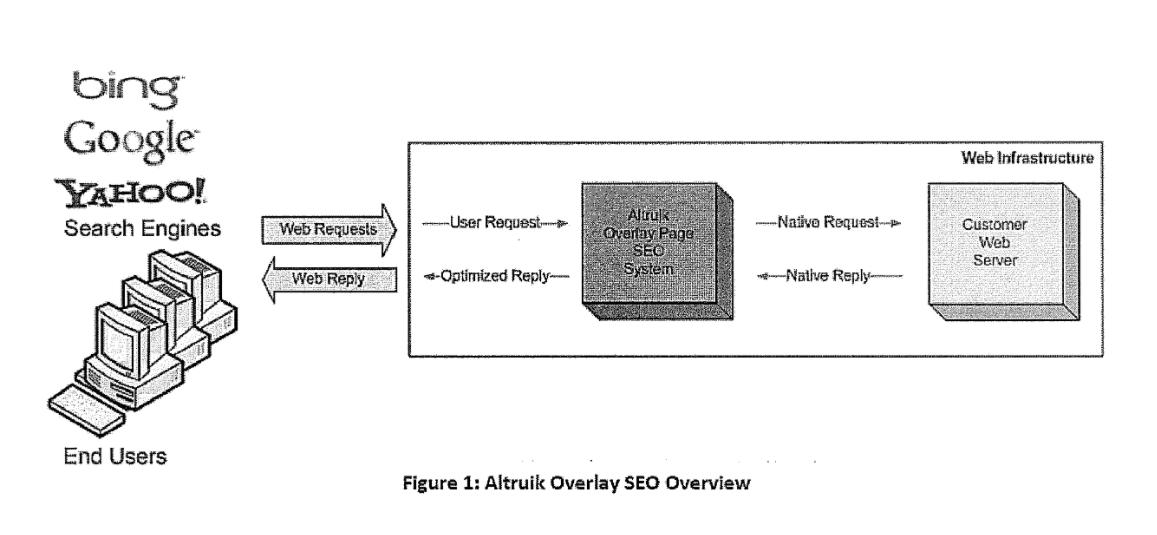
They further explain that it could be used to adjust content based on a series of “SEO Rules.” Sound familiar?
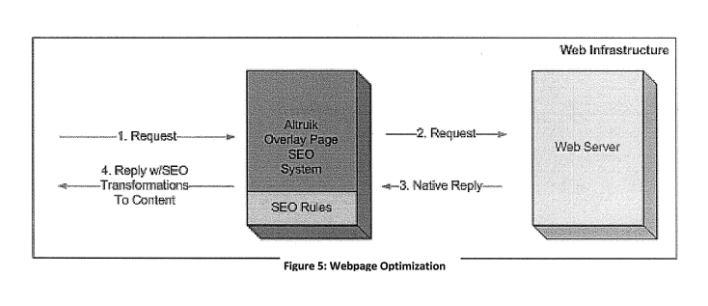
Hamlet’s 2015 patent, System and Method for Real-time Search Engine Optimization Issue Detection and Correction, outlines a system that automates technical SEO fixes at the edge. This patent was cited by eBay and BrightEdge.
It highlights mechanisms for making changes to a variety of tags including, but not limited to, title tags, meta descriptions, robots directives, and canonical tags. The below image showcases how the system makes decisions:
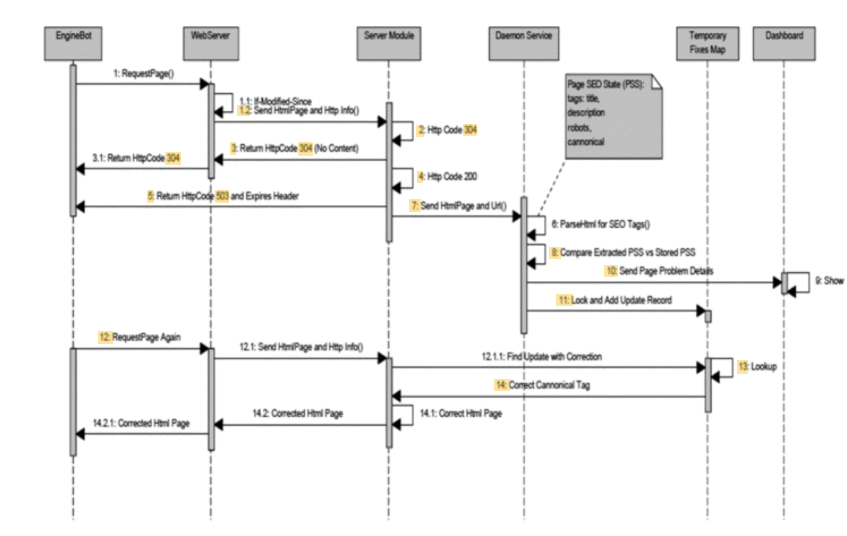
Effectively, he worked with his own team to advance the inventions that he worked on while he was at Altruik.
These patents make it crystal clear that what we currently refer to as “Edge SEO” and the developments in recent SEO technology are quite literally attributable directly to him. This is not the same as the infamous lawsuit filed by BrighEdge against Searchmetrics. This is actual evidence of innovation that should be respected, regarded, and rewarded.
This is the Moment to Honor Hamlet and His Innovations
If you got this far and thought “so what, the patent is abandoned and the tech is ubiquitous now” you are completely missing the point. If you’re thinking “so what, someone else just came up with the same idea. There’s nothing new under the sun.” You don’t get it. If you’re saying “but we did it using JavaScript and not at the Edge.” You’re also missing the point.
Hamlet Batista is the American Dream. He was a literal genius that worked hard to make it into the United States and then built innovative things to propel him forward. He was also Dominican which put him at a disadvantage as he worked his way to achieve what he achieved. And now, people that are not his family are profiting from it.
Hamlet’s contribution has reverberated across many people in the SEO space. In the wake of his death there was an outpouring of love shown to him. Hamlet was always a positive force and was one of the only people who was successful at encouraging more people in our space to learn how to code. Many people will say that he inspired them to level up or he directly taught them something.
A lot of us made promises, silent or otherwise, that we’d do something to step it up in his absence. A lot of people also made promises to be the change in the wake of the racial inequities that have come to light in recent years. Well, this is it. This is your chance to make a difference in a space that you work in every day.
Hamlet is not here to defend himself, his tech, or his legacy. We should take this opportunity to give to him in the way he gave to us.
This whole situation is particularly upsetting to me, but I truly believe that when we know better, we can do better. Let’s do better.

Our Opportunity
I’m not sure I have the exact answer to solve this, but I do have a couple ideas.
I think there are at least three things that should be done to start, but I am open to any discussions of additional ideas.
- SEO Software Companies seeking to profit from Hamlet’s uncredited and uncompensated intellectual labor should contribute to ensuring the financial security of Hamlet’s family –
- Short-term: Lily Ray has maintained contact with Hamlet’s family and organized a GoFundMe a year ago that never met its goal. Companies like Conductor, SEMRush, SEOClarity and anyone else that has benefited from Hamlet’s innovations have a moral obligation to make this right and that GoFundMe is a quick first step in the right direction.
- Long-term: A trust should be established for Hamlet’s family so his work can continue to provide for them.
- SEO Software companies profiting from Hamlet’s uncredited and uncompensated intellectual labor should donate annually to a scholarship fund in Hamlet’s name – We should establish the Hamlet Batista Foundation to administer a scholarship for people of color interested in studying Computer Science and/or Data Science. Additionally, the foundation should use a portion of the funds that it raises to help citizens of the Dominican Republic studying those fields looking to emigrate to the United States. SEO software companies that have benefited from Hamlet’s innovations should commit to donating $20,000 annually to the foundation.
While I would prefer the community’s support in administering this fund, I will happily do the legwork to register the company, apply for 501c3 status, and find a competent third party to manage it. - SEO Software Companies profiting from Hamlet’s uncredited and uncompensated intellectual labor should credit him. Simple. #giveHamletCredit.
What else can we do?
This whole situation is particularly upsetting to me, but I truly believe that when we know better, we can do better. Let’s do better.
Feel free to reach out to me if you have ideas for what we can do here.
Those of you that question why I would go so far as to write something like this to take these companies to task, I simply have one question for y’all: Are we so insensitive as an industry to think it’s okay to announce a product that copies the work of one of this industry’s most innovative talents and does not credit him on the day before the anniversary of his death? I truly hope not.
This is not about doing what’s legal; it’s about doing what’s right.
Y’all know how to reach me. In the immortal words of Hamlet: Don’t wait. 🐍🔥
ipullrank
#ZoraAndGlorysDad. International thought leader. Marketer. Engineer. Rapper. Entrepreneur and now - AUTHOR!



